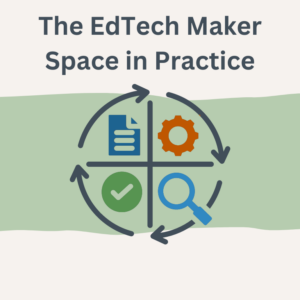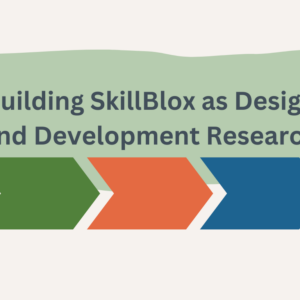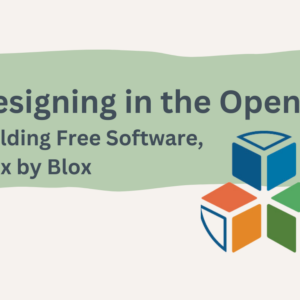By Jamie Kreil and Jen Vanek
With the launch of the Adult Literacy XPRIZE Communities Competition in 2018, adult literacy programs across the US had unprecedented access to relevant and free mobile apps for learning. Among the apps used was Learning Upgrade, which offers over 1,000 lessons covering multiple levels and content in English, math, GED preparation, digital literacy, and reading delivered through rich graphics, videos, and music.
Learning Upgrade built on their success as grand prize winners in the Adult Literacy XPRIZE by incentivizing use of the app through a gamified approach to engagement at the student, classroom, and program levels. In the subsequent Learning Upgrade Challenge, students have gained prizes for use of the tool, and teachers and programs who have had the most use of the app won extended licenses. Many programs continue to rely on Learning Upgrade through the pandemic, using free and discounted licenses to support learners at a distance. The EdTech Center@World Education reached out to these power-users, the learners, teachers, and programs, to better understand how and with whom it has the most potential impact before and now during the pandemic.
Siena Literacy Center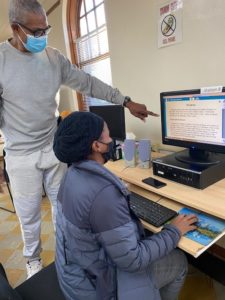
Siena Literacy Center is a non-profit organization located in northwest Metropolitan Detroit. The organization matches volunteer tutors to adult students to teach reading, math, English as a Second Language (ESL), and computer skills. What is notable about their program is that they rely on volunteers working closely with learners, serving over 2,000 students with 600 tutors since 1995. They have been able to leverage Learning Upgrade to sustain this model during the COVID-19 pandemic, using it as an alternative that supports lowering the number of learners they serve on site.
Siena’s Use of Learning Upgrade
The program chose Learning Upgrade early last winter because of its alignment with Michigan state standards. In months prior to the pandemic, Siena worked out implementation strategies that helped them make use of built-in student tracking affordances to monitor their tutor-supported program participants. The standards alignment gave administrators confidence that tutor-supported learners were set up to make progress in their learning. When the program was forced closed during the pandemic, this base of knowledge supported the expansion of their tutor-supported remote instruction. They continue to expand the number of students who have access; over the summer approximately 60 students used it to learn from home.
Learning Upgrade’s administrative dashboard has made it possible for administrators to see learners’ progress remotely. There are several options for viewing individual student and cohort work. This example, provided on the Learning Upgrade dashboard, shows how individual learner progress in a particular course is monitored.
This example, provided on the Learning Upgrade dashboard, shows how individual learner progress in a particular course is monitored.

This example shows other alternatives for monitoring student work, showing data on progress, pace, and time.
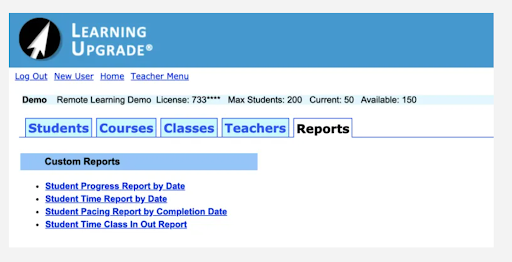
Tutors make use of the dashboard options and well-organized content to support instruction. Because of the relatively linear path of the lessons, tutors can easily follow the scope and sequence of the content, freeing them to provide effective support to students and answer questions students have about the lessons. Learners can achieve their learning goals by receiving this just-in-time support from the tutors.
Supported Tutors
The use of Learning Upgrade with tutors during the pandemic has worked at Siena in part because the tutors have training and ongoing support. Cheralyn Suggs, the Placement Coordinator at one of Siena’s sites, matches tutors to students. Since closing for the pandemic, Suggs noticed an uptick to “over a dozen great volunteer tutors” using Learning Upgrade with students learning remotely. Suggs said this works because of the training that Siena proactively provides tutors, sharing strategies and resources to help them address issues students may have. For example, Siena created template text messages that tutors can use to help learners sign-in and navigate the app. The text messages show app screenshots with arrows showing where to click. Additionally, tutors and staff use online platforms for live contact (e.g. Facetime, WhatsApp, Zoom, etc.) with students when longer explanations and instructional support are needed.
Learner Experience
The learners we interviewed reflected the range of diverse learning needs typical of the students Siena serves. The learners discussed the importance of their work with tutors, which contributed to their success learning through the app. Students also noted that they were able to meet their goals, earning certificates and improving in various skill areas.
Amare, a beginning level English language learner worked with both staff and his tutor. He also got help from his daughter when he used Learning Upgrade at home. He said logging in the first time was confusing; because of his literacy challenges, he thought the letter ‘b’ was the number ‘6’ in his password. Staff at Siena helped him work through issues to keep him engaged. Amare also said that the log-in challenge was a signal to his tutor to review the alphabet and basic decoding skills.
Martha, a student in the early stages of her GED math study, relied on her tutor to progress. She told us that she relied on her tutor to help her understand what math questions were asking for, and “how to pick the right answer to problems [in] the right format.” Since there were many different types of questions, this ongoing tutor support kept her engaged. Her tutor also provided assistance navigating the lesson, by identifying where to start and how to replay each lesson. For Martha, the ability to replay or redo lessons helps to increase her understanding of math concepts.
Summary
Through this research we’ve seen one model for use of an app like Learning Upgrade. The big takeaway here is that a highly structured curriculum with a well-organized administrative dashboard makes it possible for community-based organizations that rely on volunteers to offer consistent, standards-aligned instruction. For Siena, both the volunteer tutors and Learning Upgrade have made it possible to continue to serve learners during the COVID-19 pandemic. Siena knows exactly what tutors are covering with learners, the tutors have ample support and training, and the learners feel connected to the program through the volunteers. It’s a winning combination for Siena and other tutor-supported adult literacy programs.
Visit the Learning Upgrade website for more information about the app. Check out the Learning Upgrade Action Plan to see how you might use the resources available during the pandemic.


